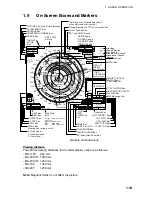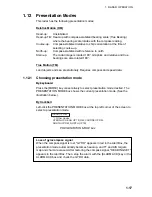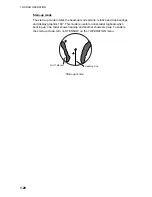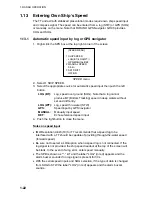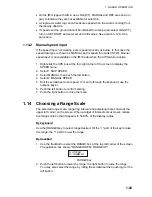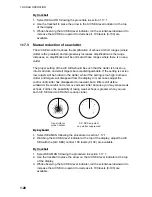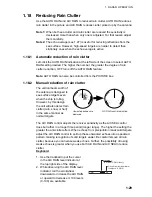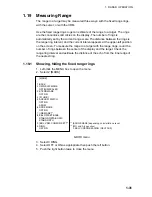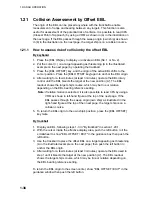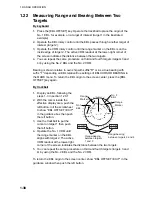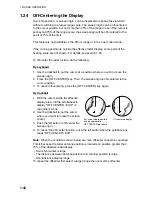
1. RADAR OPERATION
1-27
1.17 Reducing
Sea
Clutter
Echoes from waves cover the central part of the display with random signals
known as sea clutter. The higher the waves, and the higher the antenna above
the water, the further the clutter extends. When sea clutter masks the picture,
reduce it by the A/C SEA control, either manually or automatically.
Note 1:
When both sea clutter and rain clutter are reduced, the sensitivity is
decreased more than when only one is adjusted. For that reason adjust
them carefully.
Note 2:
The echo average (see 1.27) is useful for reducing reflections from the
sea surface. However, high-speed targets are harder to detect than
stationary ones when the echo average is active.
1.17.1
Choosing method of adjustment
1. Use the trackball to select SEA AUTO or SEA MAN (whichever is shown) at
the top of the display.
SEA AUTO
Place arrow inside window
to adjust A/C SEA.
A/C SEA adjustment
method (SEA AUTO or SEA MAN)
Level bar
30
A/C SEA level indicator
2. Push the left button to display SEA AUTO or SEA MAN as appropriate.
1.17.2
Automatic reduction of sea clutter
Auto A/C SEA allows for fine tuning of the A/C SEA circuit, within ±20 dB.
Accordingly, with the bar reading set to 100, gain is not lowered to minimum as
with manual A/C SEA on close-in ranges. Further, the auto A/C SEA level is low
because the average value of the original input echo is low in areas where there
are no sea surface reflections. For example, when the ship is alongside a quay
and the radar picture shows echoes from both land and sea, you can observe
the size of the echoes because the STC curve changes with the size of the
echoes.
Note:
The auto A/C function can erase weak target echoes. Adjust the control
carefully, watching the display.
By keyboard
1. Select SEA AUTO following the procedure in section 1.17.1.
2. While observing the A/C SEA level indicator, adjust the A/C SEA with the [A/C
SEA] control. 100 levels are available.

